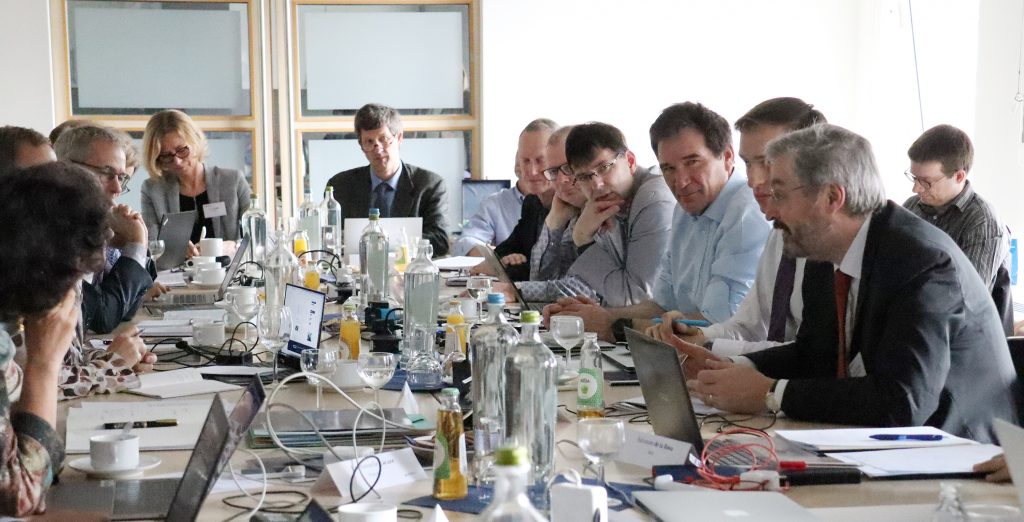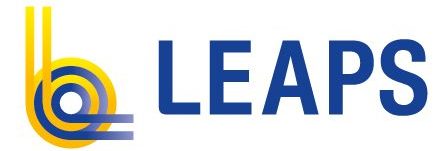Round table in Brussels
The LEAPS roundtable meeting was held on 4 April 2019, in Brussels with high-level representatives from Research Ministries, National Funding Agencies from LEAPS host countries and from the European Commission.

The roundtable was set up to discuss principles and modalities of a co-found action under Horizon Europe enabling a new pan-European effort in devising and implementing advanced technologies to the greater benefit of European science and society.
The LEAPS roundtable consisted of high-level representatives of mostly research Ministries, but also of national funding agencies from LEAPS host countries and the European Commission. The roundtable was set up to discuss principles and modalities of a co-found action under Horizon Europe (HE), enabling a new pan-European effort in devising and implementing advanced technologies to the greater benefit of European science and society.
Helmut Dosch, Chair of LEAPS, welcomed the participants and presented the LEAPS initiative, the challenge of new technologies and the idea of a coherent approach of cooperation to find complementary solutions without losing competition in Europe. He elaborated on various LEAPS ambitions including the development of common standards inter alia in data management and open science policy. He further stressed that by joining forces the necessary development of advanced technologies will become faster, better and cheaper for each facility and Member States (MS). Investments of ~ €9 bn have already been made by LEAPS host countries in order to deliver and operate the world-class LEAPS facilities for the benefits of the European Research Area. LEAPS openness to the world is demonstrated by important strategic partnerships in Europe and beyond.
Philippe Froissard updated on the current status of Horizon Europe with a particular focus on RI and co-fund actions. The rules for implementation are not defined yet, close interaction with EC (unit of RI & Partnership) is recommended. LEAPS may prepare a multi-year program with yearly work plans to be supported by the EC and – if applicable – by research Ministries or national funding agencies. Philippe Froissard stressed that in order to benefit from EU funding it is most important to clarify that LEAPS will be of benefit to all European Member States, also those not operating a lightsource facility.
During the following Q&As, it became clear, that resources from LEAPS host countries can be in-kind.
It was clarified by Philippe Froissard that
− LEAPS could employ flexible HE instruments including specific calls or PCPs,
− National resources going to LEAPS do not subsidise something outside their country (LEAPS
host countries fund “their” facility/-ies which is/are entrusted to provide in-kind the
necessary LEAPS resources),
− National and European funding will not be mixed, and that
− bureaucratic efforts should be kept as low as possible.
All participating LEAPS host countries representatives expressed their appreciation and support of the LEAPS initiative. LEAPS was congratulated for the excellent brochure “LEAPS Landscape Analysis” and has been asked to prepare a concept of a LEAPS co-fund action with an outline of a possible work LEAPS programme and its governance structure to be considered in the “Strategy Plan for HE” by the European Commission and to be finalised by the end of 2019. This will help LEAPS host countries to understand the content in more detail and ensures enough time for them to prepare the eventual national support. LEAPS host
countries representatives suggested that the LEAPS co-fund action proposal is sent to the European Member States with a declaration signed by LEAPS partners.
